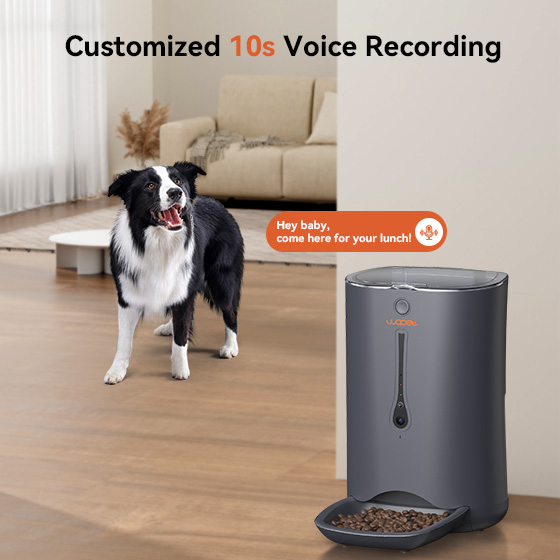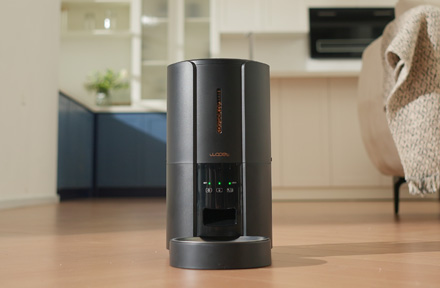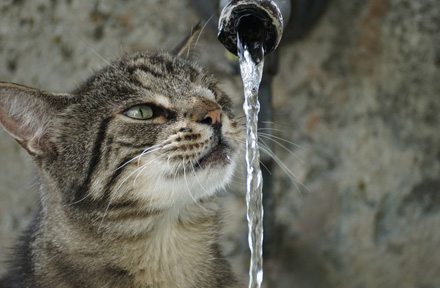May 13, 2025
Author:Lisa Martinez

Have you ever watched your best friend refuse breakfast, race to the yard, and struggle with another bout of tummy trouble? It leaves you worried and wishing you spoke fluent “dog” so you could solve the problem on the spot.
If that scene sounds familiar, your pup may be one of the many pets coping with dog with inflammatory bowel disease. Let’s dive into what that means, why food choices matter so much, and how you can use simple meals to bring comfort back to mealtimes.
IBD is a chronic irritation of the digestive tract. The lining of the stomach or intestines swells and thickens. When that happens, food passes too quickly, critical nutrients slip away, and your dog ends up with vomiting, diarrhea, and weight loss that never seem to quit.
Researchers have not pinned one clear cause on IBD. Many point to a blend of genes, an over‑eager immune system, and the microscopic world of gut bacteria. Some studies also note that certain diets and even everyday stress can fan the flames. Because food moves across those inflamed tissues all day long, every bite plays a big role in calming—or irritating—the problem.
Food can be friend or foe. Some protein sources spark an immune response and make symptoms worse. Others slip through quietly and give the gut time to heal. The right meal plan can:
● Soothe inflammation so the intestines absorb nutrients.
● Cut down gas, cramping, and urgent bathroom trips.
● Restore energy so your dog with inflammatory bowel disease can enjoy walks and play again.
Every dog is different, so you may need to test several recipes before one sticks. Stay patient, keep notes, and celebrate each small win along the way.

A swollen intestinal wall cannot do its normal job. Nutrient molecules that normally slide nicely into the bloodstream get blocked or washed out in diarrhea. At the same time, harmful bugs may take over, changing stool smell and texture.
Your dog may even start reacting to familiar proteins—think chicken or beef—that never caused issues before. So a new menu often brings the fastest relief.
Inflammation narrows the gut lining and speeds up transit time. Essential fats, vitamins, and minerals leave the body unprocessed. Many dogs grow sensitive to everyday foods, so the old kibble that worked for years suddenly causes distress.
A healthy gut holds a bustling city of good bacteria that help break down fiber, fight bad germs, and train the immune system. IBD shakes up that city, letting unhelpful microbes crowd out the good ones. A diet rich in certain fibers and fermented supplements can rebuild that balance.
● Ongoing vomiting or loose stools
● Sudden weight drop despite a big appetite or, in some cases, picky eating
● Dull coat, lethargy, and a sad mood
If you see these red flags, ask your vet about screening your dog with inflammatory bowel disease.
When standard kibble fails, vets often turn to special diets that put less stress on the gut. You may see these labels:
These meals feature uncommon meats like duck, rabbit, or venison. Because your pup has never met these proteins, the immune system tends to stay calm. Less immune drama means fewer flare‑ups for a dog with inflammatory bowel disease. We recommend you buy WOpet’s automatic pet feeder.

Science steps in here. Manufacturers break long protein strands into tiny bits that the immune system can’t recognize. Think of it as a disguise that sneaks nutrients past the gut guards. Many dogs thrive on these formulas when all else fails.
Fewer ingredients mean fewer chances for a bad reaction. One protein, one carb, and perhaps a vitamin mix—that’s it. Owners can also spot patterns faster and avoid triggers.
Soluble fibers from oats or pumpkin feed friendly gut bugs and bulk up stool, which can help regulate bathroom breaks. Insoluble fibers, on the other hand, sweep waste along. Your vet will guide you toward the right blend.
Some foods fan the fire inside an already‑sensitive belly. Drop these from the bowl during flare‑ups:
● Common allergens – Chicken, beef, dairy, corn, wheat, and soy often top the list.
● Artificial additives – Colors and preservatives can irritate the gut. Check labels and skip the rainbow.
● High‑fat foods – Heavy fats linger in the stomach and trigger cramps or diarrhea.
These ingredients stir up the immune system, making life harder for a dog with inflammatory bowel disease.
Changing what you feed is only half the story; how you feed also matters.
● Small, frequent meals keep strain low and energy steady.
● Easily digestible foods such as white rice or sweet potato pair well with lean protein.
● Supplements like probiotics and digestive enzymes support gut repair. You can also add marine‑sourced omega‑3s to cool inflammation.
● Moist foods and extra water protect against dehydration, a real risk when diarrhea strikes. To learn more, scan these simple signs of low fluid in pets in the hydration guide.
If your buddy gulps meals and then vomits, slow feeders or an automatic feeder can keep portions calm and steady.

Cooking at home lets you pick every ingredient. You can skip problem foods, choose fresh cuts, and adjust textures for easier chewing. Plus, many owners enjoy the peace of mind that comes with “human‑grade” meals.
Yet home cooking has pitfalls. Dogs need precise amounts of calcium, phosphorus, certain amino acids, and trace minerals. Miss the mark and you may trade gut issues for joint troubles or weak bones. A veterinary nutritionist can design balanced recipes or fine‑tune one you find online. Try this homemade recipe if your vet gives the green light.
IBD rarely follows a straight path. Vets often run blood tests, stool checks, and even intestinal biopsies to rule out infections or cancer. Once they confirm IBD, they may start a food trial that lasts eight to twelve weeks. During that time, your dog with inflammatory bowel disease should not taste treats, table scraps, or flavored meds that break the test.
As the months pass, the gut may heal enough to welcome new foods, or it may stay picky. Keep regular check‑ups so the vet can tweak the plan.
● Cut stress. Gentle exercise, puzzle toys, or interactive play brings joy and keeps digestion moving.
● Stay parasite‑free. Fleas and ticks burden the immune system. Learn quick tick removal so bugs don’t pile on problems.
● Mind the skin. Many IBD pups also battle rashes. If red patches appear, skim this guide to common skin problems and talk to your vet.
● Limit big treats. A whole bully stick may throw off the diet. Choose tiny, single‑ingredient rewards instead.
● Use gear that fits. A comfy harness, like the no‑pull designs discussed in this walk‑friendly roundup, prevents pressure on a sore belly.
● Secure the yard. If sudden diarrhea strikes, a wireless fence gives quick outdoor access while keeping your explorer safe.
● Ease door traffic. A smart pet door, featured in this handy list, lets your buddy step out for urgent breaks without waking the household.
● Trim hair wisely. Sensitive bellies may dislike loud trimmers. Quiet grooming tools lower anxiety.
● Know your breed’s quirks. Some breeds, like the German hound, show unique food reactions. Breed research can guide diet picks.
Each step reduces flares and builds comfort for your dog with inflammatory bowel disease.
Inflammatory bowel disease can feel endless, but the right diet turns the tide. Fresh proteins, limited ingredients, and gentle fibers often calm the gut. Skip common allergens, heavy fats, and artificial extras. Feed small, moist meals, add gut‑friendly supplements, and keep plenty of water within reach. Most of all, partner with your vet. Together you will test, tweak, and finally land on the plan that keeps your dog with inflammatory bowel disease wagging.
Label:
Popular Post

What to Feed a Sick Dog With No Appetite? [2025 Guide]
May 16, 2023

Troubleshooting Common Issues with Automatic Pet Feeders: Tips & Tricks for Pet Owners
Oct 26, 2023

Why Does My Cat Cough After Drinking Water? 8 Potential Reasons
Mar 13, 2023

My Cat Only Eats A Little at A Time - What to Do?
Feb 27, 2023

Why is My Cat Throwing up Water? Top 5 Causes Here
Feb 08, 2023
$99.99
$129.99
Copyright © 2025 WOPET. All Rights Reserved.